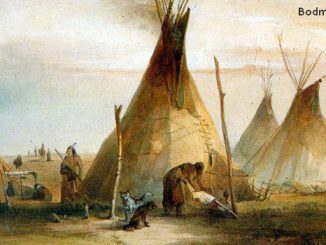
The “frontier”
[America, around 1830/40] The United States pushed their border, the “frontier”, further and ever further westwards. More and more Indians were displaced from their traditional lands and forced into reservations.

[America, around 1830/40] The United States pushed their border, the “frontier”, further and ever further westwards. More and more Indians were displaced from their traditional lands and forced into reservations.
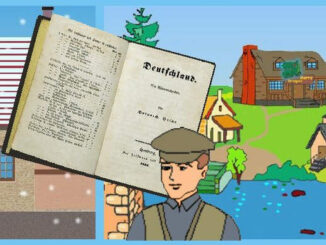
[America, around 1845] Niklas Bergmann received a book that his German relative Jean had smuggled across the border and sent to him. It was Heinrichs Heine’s “Germany. A Winter’s Tale”, banned in Prussia.
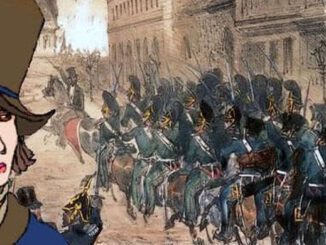
[America and Germany, 1848/49] Good news come from Germany: the March revolution, a country united and the National Assembly. But eventually, revolution fails, and Lorenz Bergmann must flee.
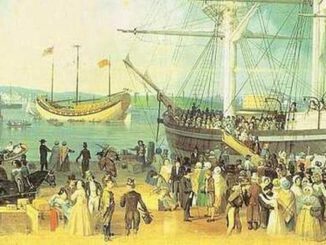
[America, 1850] Niklas and Heinrich Bergmann, now seasoned gentleman, stood on the pier in New York and waited for Lorenz. He had had just enough time in London to telegraph the name of his ship to the USA.
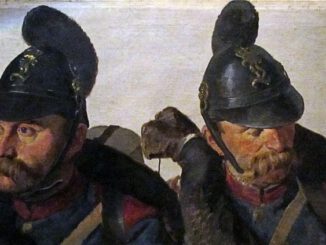
Part 3 takes place at the time of the Civil War in the USA, which separated the emigrant family. Their friends on the Rhine helped with the reconstruction. Then the unification wars begin in Germany.
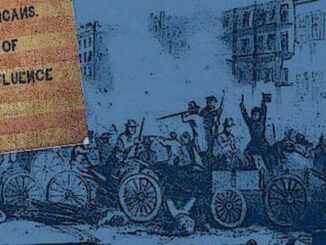
[America, around 1850] Lorenz, the Forty-Eighter, had settled in well. He had met all members of his American family and was eager to learn about the country and its people. Moreover, he had found his personal happiness.
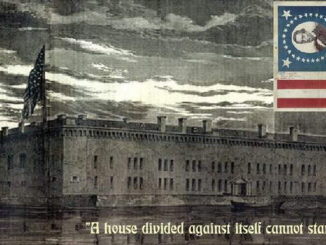
[America, around 1860] A large country had come into being, but it was not a homogeneous one. Harvey Bergmann, the political journalist, observed these developments with great concern.
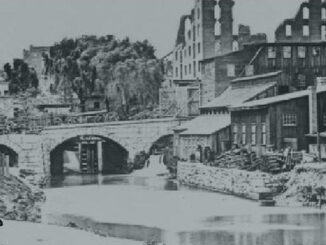
[America, 1861-1865] After Lincoln’s election, South Carolina declared secession on December 20, 1860. Until February 1, 1861, Georgia, Alabama, Mississippi, Louisiana, Florida, and Texas followed.
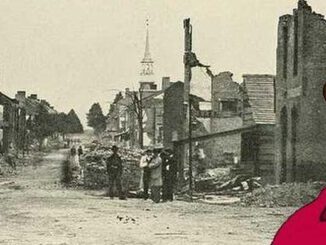
[America, 1865] America, 1865. In a bitterly fought Civil War, the Northern states were victorious in the end. The Union prevailed. After that, the South was ruled by the military, and war profiteers came in.
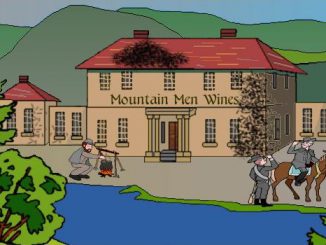
[America, 1865] When the war broke out in the United States, the entire Bergmann family on the Rhine also feared for their relatives in America. Now Emil and Lena set out to helped with reconstruction.
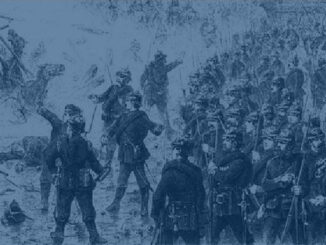
[America and Germany, 1866] In Germany, war was looming between the two great powers, the Kingdom of Prussia under Wilhelm I in Berlin and Franz Joseph’s Habsburg Empire of Austria in Vienna.

[Europe and America, 1870/71] After his failure in Mexico, Emperor Louis Napoleon Bonaparte in France needed a success in his foreign policy. The much aggrandized Prussia and Bismarck annoyed him.
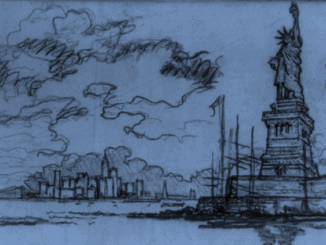
Part 4 takes place in Gilded Age America and the aspiring German Empire. It is the time of imperialism, of “world policemen” and world empires Tensions rise between the nations, but none wants to back down.
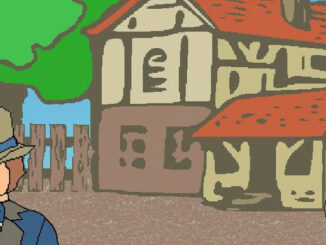
[Rhineland, 1872] Having achieved their aims, Emperor Wilhelm I and Bismarck were milder on the Forty-Eighters. The Prussian authorities granted pardon to Lorenz, and he could finally come for a visit home.
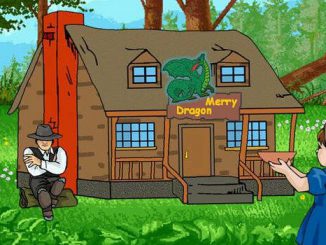
[America, around 1877] After the Civil War, more and more settlers moved to the West, throughout the prairies and the west new cities came into being, railroads and stagecoaches opened up the West.

[America, around 1870/80] Carl Schurz, the German revolutionary of 1848/49, loved his new homeland. After the Civil War, he moved to St. Louis, and in 1869 he was elected to the US Senate for Missouri.
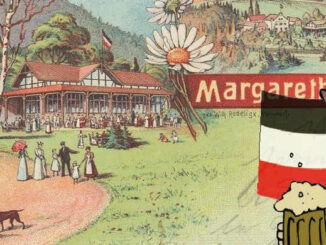
[Germany, around 1880] Germany was united, and a deeply felt wish of many people had been fulfilled. However, with 10 million Austrian Germans outside, Prussia’s dominance was overwhelming.
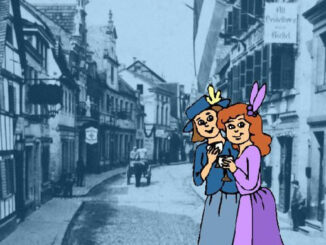
[Germany and America, around 1890] The year 1888 saw three Emperors: Wilhelm I died in March, and his son Friedrich III died 99 days later. So the young Kaiser Wilhelm II got on the throne.
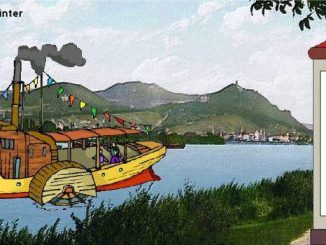
[Rhineland, 1893/94] A few weeks later, Lorenz and Annelie were on board of a huge ocean steamer from America to Germany, to visit Lorenz’ old homeland and their relatives and friends on the Rhine.
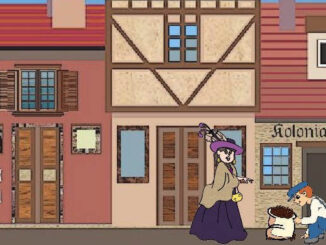
[Rhine Province, ca. 1906/1907] In the “Limbach-Stübchen” Jakob also offered colonial goods. In the guest room, Jakob also served cocoa and coffee. Often the neighboring children did their schoolwork here.
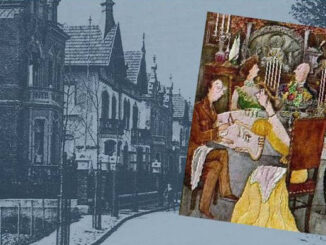
[Rhineland, around 1893/94] 1893 was a happy year. Sophie’s aged parents Anni and Jean were doing well. Jakob ran the “Stübchen” for them. Lorenz Bergmann came to visit from the USA with his wife Annelie.
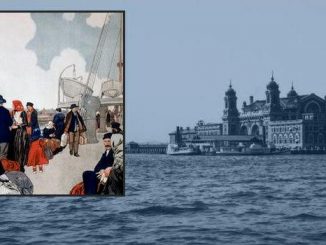
[America, 1895] Two years after Lorenz’ and Annelies visit, Sophie’s dream had come true. With her daughter Lottie and her son-in-law Matthias she stood at the southern tip of Manhattan, looking out over the Atlantic.
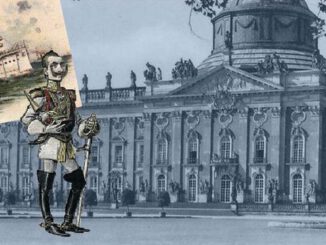
[USA and Europe, around 1910] For generations, the Bergmanns in America and on the Rhine had always kept closely in touch. But as the powers set out to divide the world among them, the world grew colder.
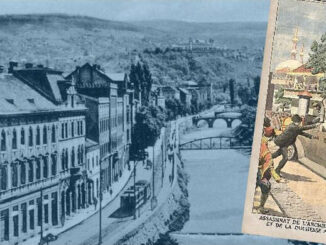
[Austria-Hungary, 1914] In the East, the Balkans were a “powder keg” that could explode any time. Serbia was very proud and ambitious – a disturbing neighbor to the Habsburg empire Austria-Hungary.
Copyright © 2024 | MH Magazine WordPress Theme by MH Themes